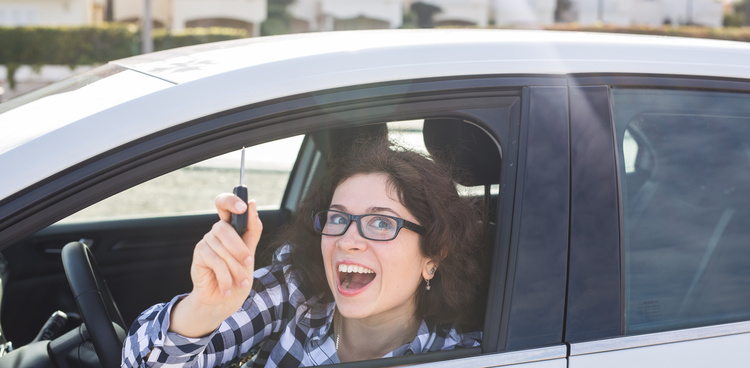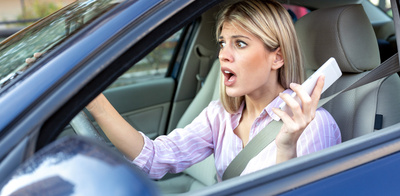
How to Control Your Emotions When Driving
There is no other way around it. Driving is extremely dangerous, especially if you are not in your right senses due to environmental pressure, mental dysfunction, and ill-health. Therefore, even if you are an expert driver, there is always a risk associated with getting behind the wheel because accidents are unprecedented. Consequently, your emotional status plays a critical role in determining how calm, collected, focused, and alert you are in a driver’s seat.
Individuals often experience several emotions while driving. It might be excitement and anxiety because of your destination, stress in unfavorable weather, anger when careless drivers make mistakes, and distractive thoughts from life events. Although there is no limit to how many potential scenarios an individual can experience and feelings associated with them, the ultimate solution to staying safe on the road is learning how to control your emotions.
 How Can Your Mental State Impact Your Driving?
How Can Your Mental State Impact Your Driving?
While driving, the state of your mind has a significant impact on how well you drive for several reasons. Your psychological and emotional state influence how focused you are on the road, how safe you are, whether you are following traffic laws, and the risks you are willing and able to take in the driver’s seat.
For example, you might be stressed and anxious if you are running late for an important meeting or work. As a result, you might exceed your speed limit or not pay attention to driving rules in an attempt to reach your destination on time. On the other hand, an individual with enough time will be calm and focused on their journey as opposed to racing to beat time. Therefore, the different states of these individuals put them in different positions when driving. If you find it difficult to control your emotions when driving, it is advisable to pull over and take a breather to allow you to calm down and limit risking your safety.
What Emotions Do Drivers Occasionally Experience?
Although most drivers experience different emotions on the road, a majority of them are unable to control their anger because of four reasons; tension, goal-blocking, unwritten rules of the road, and anonymity.
Driving is a tense activity because of the hazards associated with being on the road. As a result, most individuals suffer from physical and mental tension due to their increased heart rate, thus galvanizing their angry reactions in situations.
Similarly, goal-blocking is a notable contributor to anger because drivers perceive anything that prevents them from arriving at their destination as a hindrance. As a result, drivers subconsciously get angry at anything that comes in their way, including traffic lights, another driver cutting them off, speed limits, and speed bumps. That is why it's easy to lose your temper while driving.
The third reason is sticking to the unwritten rules of the road. In other words, every driver has a set of rules they strictly follow while driving. Therefore, some people might drive below the speed limit, others might drive at 65 mph where the speed limit is 60, and others may surpass the speed limit by up to 10 mph. Therefore, you should avoid getting angry at people because of their decisions about how to drive.
Finally, anonymity is another reason why most drivers are usually angry. Drivers perceive themselves as faceless people on the road. As a result, getting angry and having a negative label is more manageable than when in personal interactions.
How Can You Control Your Emotions While Driving?
It is impossible to control how other people drive or react to your driving. However, you can control how you feel and your actions behind the wheel. One of the best solutions to dealing with emotions is controlling your thoughts. Maintaining a positive mindset makes you less likely to react impulsively in stressful situations. Similarly, deep breathing is effective when under stress because it helps you calm down.
Subsequently, planning your journey before setting off can help avoid several situations that alleviate strong and negative emotions. You can investigate whether the road you are taking to your destination is full of traffic or not to allow you to choose the best route and avoid stress.
On the other hand, if you are experiencing a situation where breathing exercises do not relieve your feelings and emotions, it is best to avoid driving altogether. Driving when unable to control your feelings or impulsivity is destructive. It might lead to accidents, alleviated stress, loss of driving license, destroying your vehicle, and severe reparations like injury, harming others, and death. Therefore, it is best to adopt solutions like listening to soothing music and avoiding anything that can get in the way of your focus.
How to Avoid Emotional Stress When Behind the Wheel
Emotional and physical stressors are part of human growth and development. As a result, it is impossible to avoid stress during daily activities. However, you can leverage a few techniques to stay on the safe side. You can start by adjusting your seat before driving to be in the best position, right posture, and comfortable for extended periods. Similarly, you can practice breathing exercises, talk to friends over your loud speakerphone, and always pull over when you are hot-tempered, not relaxed, or angry because of something.
If your stress is not because of personal issues but rather the fault of other people, a traffic jam, or careless drivers, it is best to empathize and put yourself in their shoes. People go through many issues that stay hidden from others unless they decide to disclose them. Therefore you should not be quick to judge their rationality because of the adversity of the problems they may be experiencing. Learn to convince yourself that other individuals are also stuck in the same traffic and that the individual who shouted obscenities at you or cut you off is just having a bad day than yours. In the long run, you will be able to control your emotions when on the road.
Controlling your emotions and reactions is a critical skill in several aspects of life. Nonetheless, when it comes to driving, self-control might be the only thing keeping you from losing your focus and getting into grizzly accidents.
Get your handicap parking placard online today!
References
https://www.kansashighwaypatrol.org/176/Aggressive-Drivers
https://www.webmd.com/women/features/root-cause-of-road-rage
https://www.apa.org/topics/anger/strategies-controlling
https://www.mentalhelp.net/blogs/the-psychology-of-road-rage/
https://www.tdi.texas.gov/pubs/videoresource/fsaggressive.pdf
https://www.dol.wa.gov/driverslicense/roadrage.html
.png)





